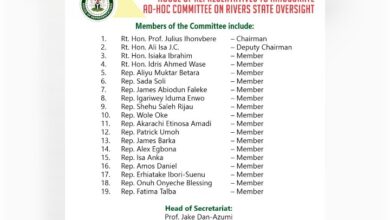Tinubu Rules Out Fresh Borrowing as Nigeria Exceeds 2025 Revenue Plan

The United States government has strongly criticised Nigeria’s continued ban on the importation of 25 product categories, describing the restrictions as a major trade barrier that undermines bilateral relations and costs American exporters billions of dollars in lost revenue.
In its latest National Trade Barriers Report, the United States Trade Representative (USTR) listed Nigeria among the top 10 countries with “unfair trade practices.”
The USTR said the bans, which affect U.S. exports in agriculture, pharmaceuticals, beverages, and consumer goods, deny American companies access to one of Africa’s fastest-growing consumer markets.
According to the USTR, “Nigeria’s import ban on 25 product categories, including beef, pork, poultry, fruit juices, medicaments, and spirits, creates significant trade barriers.
These restrictions limit U.S. market access and reduce export opportunities.”
The report further noted that Nigeria’s policy was particularly harmful to small and medium-sized American exporters who depend on overseas markets for growth.
Nigeria–US Trade Balance
Nigeria has long defended its import substitution policy as part of efforts to boost local production and reduce reliance on foreign goods.
However, the strategy has strained its trade relations with Washington.
Latest data from the U.S. International Trade Commission showed a sharp decline in Nigeria’s imports from the U.S., which fell from $951.6 million in 2024 to $643.1 million in 2025 a 32.4% drop.
In February 2025 alone, U.S. exports to Nigeria totalled $286.3 million, compared to $423.6 million in the same month of 2024.
On the other hand, Nigeria’s exports to the U.S., largely dominated by crude oil, rose from $214 million in January 2025 to $474 million in February.
Overall, crude oil accounted for 64.31% of U.S. imports from Nigeria in the first two months of the year.
Other Countries Under Scrutiny
Nigeria was not the only nation flagged in the USTR’s report. India, China, Thailand, Kenya, Algeria, Angola, and the European Union were also cited for introducing policies that Washington says stifle American exports.
India was criticised for banning U.S. ethanol imports, while Kenya’s 50% tariff on American corn was described as unfair.
The European Union’s new environmental trade rules were also flagged as a barrier to U.S. agricultural and industrial products.
In Africa, Angola came under scrutiny for announcing plans to restrict import licenses for poultry and meat products starting in July 2025.
The USTR warned that this could have severe consequences, noting that Angola is the largest African market for U.S. poultry, with exports valued at $136 million in 2024.
Trump’s Trade Policy
The report comes as U.S. President Donald Trump continues to escalate trade disputes globally. On April 7, 2025, Trump threatened to impose new tariffs of up to 50% on Chinese imports, fuelling concerns of a global economic downturn.
Critics say the administration’s aggressive stance risks triggering retaliatory measures from affected nations, potentially harming U.S. exporters further.
For Nigeria, the dispute highlights the delicate balance between protecting local industries and maintaining strong trade ties with one of its largest global partners.
With Washington pushing back and local businesses still struggling with inflation and currency depreciation, the Tinubu administration may soon face pressure to review its import policies in order to avoid deeper diplomatic and economic tensions.
Post Views: 293





